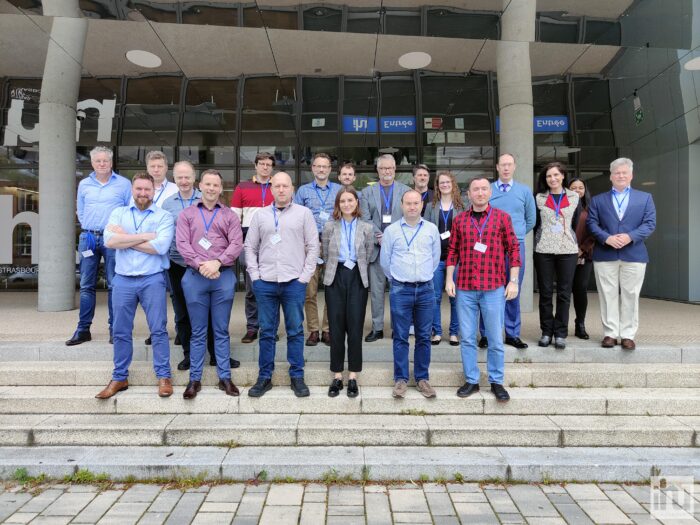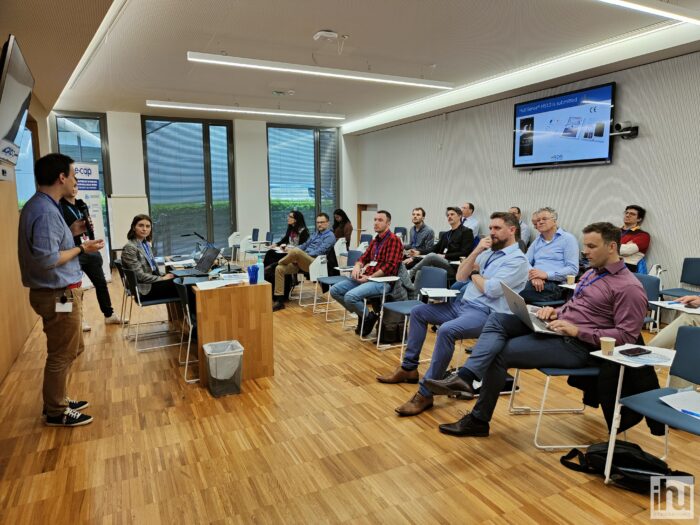eCAP Year 1: making strides towards improved diagnostics of reflux disease
On 18-19 April 2023, the first annual progress meeting for eCAP project took place in Strasbourg, France, hosted by the project coordinator Institute of Image-Guided Surgery of Strasbourg (IHU). The consortium devoted the two days to taking stock of the progress made in the first year of the project and fleshing out the work plan going forward. eCAP ambition is to develop a novel medical device combining a smart capsule with an e-health platform to enable enhanced diagnostics and patient empowered disease management for gastroesophageal reflux disease (GERD), leading to improved clinical outcomes for patients suffering from gastrointestinal disorders across the globe.
The first year of eCAP was mainly dedicated to the mechanical design of the device, with promising outcomes resulting from the collaborative effort. Sentron has led the work to select and characterise the sensors used in the smart capsule and developed a novel flow detection method for diagnosing GERD. Integer work on the capsule battery characterisation is on way to maximise the battery life of the device for elongating the time of measurement and patient monitoring, contributing to improved accuracy of diagnosis. Tyndall National Institute, Imagination Factory and EnteraSense have designed and fabricated the first iteration of the capsule and implantation device, with Tyndall also steering the work for capsule communication with the digital health platform developed in the project.
Meanwhile, the e-health workstream of the consortium has been further strengthened by the addition of a new partner – RDS (Rhythm Diagnostic Systems). RDS is a Strasbourg-based company, which has developed a cloud computing platform to monitor patients in acute stages of their care pathway, using a Bluetooth connected external patch. In eCAP, RDS will be responsible for the development of the eCAP e-health platform and smartphone applications for the patient and clinician.
In the coming 12 months, the consortium sets it sight to deliver the first iteration of the eCAP capsule and digital platform, ready for clinical validation in France. This will be followed by trials in Ukraine and Kenya, coordinated by the gastroenterology and endoscopy clinic Olymed and the Operating Theatre Practitioners Association of Kenya, to test the universality of the approach and increase the availability of GERD testing globally. The development will be guided by the clinical and ethical insights of eCAP External Advisory Boards and informed by the regulatory expertise of Betthera and EnteraSense.

